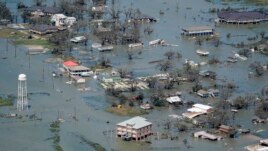02 August, 2024
Hello! This week on Ask a Teacher, we answer a question from Noura about how to describe food that is no longer safe to eat.
Question
Dear Teacher,

Would you please tell us the words we use to describe spoiled food? Now I use only one or two words for all of food types, such as " rotten" or "spoiled." However, in my native language we use different words for different categories like spoiled vegetables, bread, beverages, [and] meat-dishes. I wonder if it is the same in English too.
Answer
Thank you for writing to us, Noura. I'm happy to answer this question.
Let's begin with the two words you mention, “rotten,” and “spoiled”. We can use both words to talk about food in general. So, we can say either of the following:
That food is rotten.
That food is spoiled.
But for some foods, we use “rotten” much more than we use “spoiled.” For example, we can say rotten eggs, rotten tomatoes, rotten apples, rotten vegetables, rotten fruit, and so on. The most common usage of “rotten” is with eggs.
We use “spoiled” mostly when talking about meat or milk.
Another general term for spoiled food or drink is the expression “gone bad”.
Now let's look at some other terms we use with certain foods and drinks.
“Rancid” describes foods that contain fats that have started to go bad. These typically include nuts, seeds, and oils. Fish, meat, and poultry can also become rancid.
We use the word “stale” to describe bread that has become hard and difficult to eat. And “wilted” describes lettuce or other greens that are no longer fresh.
Mold is a kind of very small fungus. It makes food go bad and can be found on fruit, bread and cheese. The adjective we use for mold is “moldy.”
We use the adjective “sour” or the expression “to go sour” to describe milk or cream that has started to spoil. Note that there is also a food called sour cream, which is safe to eat – and quite tasty!
As you can see, a meal with rancid, stale, sour, wilted, moldy, rotten and spoiled food is one to avoid!
For our readers and listeners, do you have a question about American English? Send us an email at 21voa.com.
And that's Ask a Teacher.
I'm Andrew Smith.
Andrew Smith wrote this lesson for VOA Learning English.












